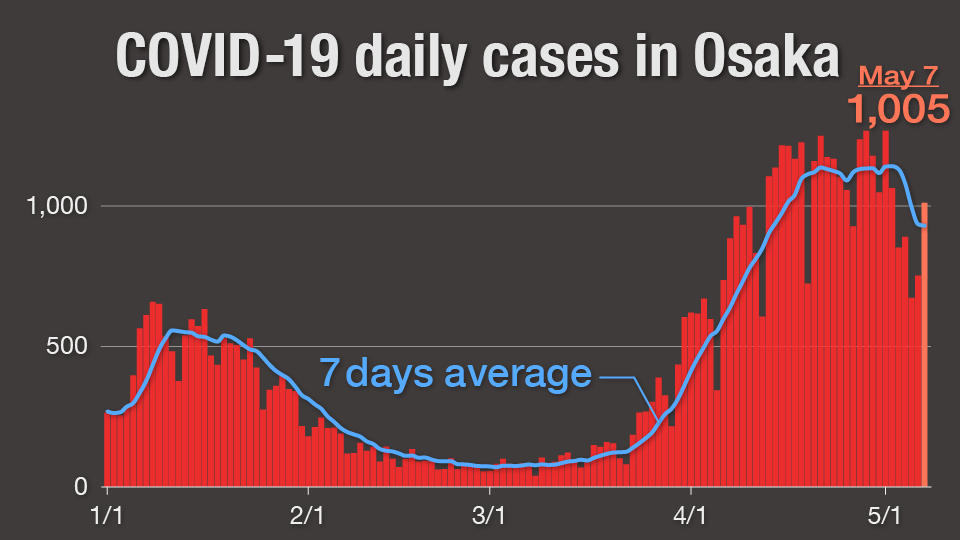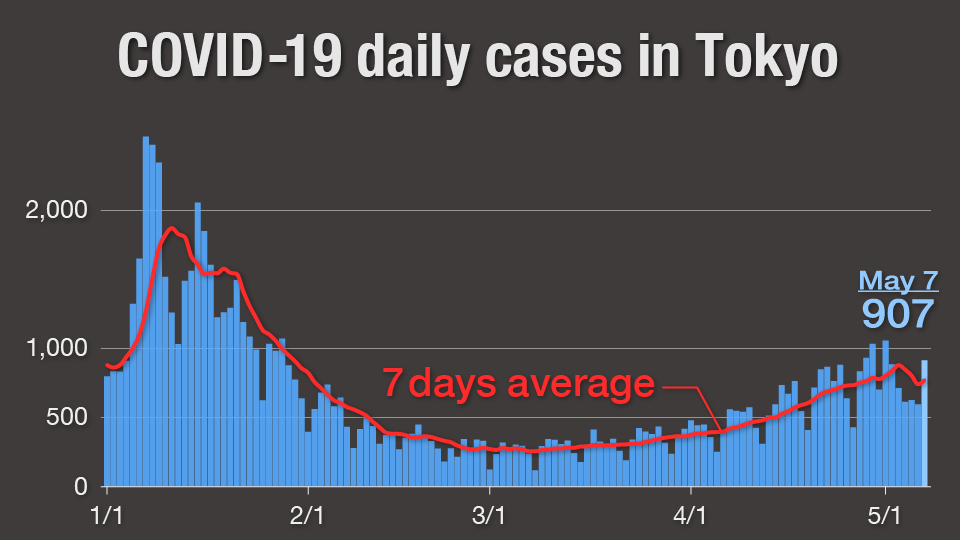"A more transmissible variant is spreading in the capital. The situation could become similar to Osaka. We feel a strong sense of crisis," Economic Revitalization Minister Nishimura Yasutoshi told a meeting of the government's panel of experts on Friday.
The current state of emergency took effect on April 25 and was set to expire on May 11. The government called it a short-term campaign to contain the spread of infection through intensive measures. But the situation is becoming increasingly serious nationwide.
Osaka is facing a shortage of beds for seriously ill patients. As of Thursday, there were 370 people in serious condition, but only 364 beds for such cases.
At an aged care facility in the city of Kadoma, 61 people — residents and staff — have been infected since the middle of last month. Among them, 14 residents died while waiting to be admitted to hospital.
"I think it will be difficult to contain in a short period of time," Osaka Governor Yoshimura Hirofumi said on Thursday. "Considering the infection and the tight medical care situation in Osaka, I don't think the current measures should be relaxed or lifted."

The Tokyo metropolitan government confirmed 907 new coronavirus cases on Friday. It was the first time in six days that the figure was above 900.
The ratio of people infected with the highly contagious N501Y mutation rose to 57 percent in the week ending April 25, up from 45.3 percent the previous week. Ohmagari Norio, director of the Disease Control and Prevention Center, says "Tokyo residents, businesses and the administration need to take united action to contain the spread of infections."

Measures to control infections
The central government is asking residents in the affected areas to stay home as much as possible. It will continue to urge bars and restaurants not to serve alcohol, and to close by 8 p.m.
The government has eased some measures in order to limit the impact on the economy. Department stores and shopping centers are requested to shorten their operating hours instead of closing altogether. Events can go ahead with spectators, but from Wednesday they will be asked limit the number to 5,000, or half venue capacity, whichever is the smallest.
One expert says the government should listen more closely to the opinions of experts and be less ambiguous about how they will lift the restrictions. Tetsuya Matsumoto, Chairman of the Japanese Society of Chemotherapy, said in a lecture on Friday, "We are currently in the fourth wave, but the situation is becoming more serious, and I think the criteria for lifting the state of emergency are too vague."

